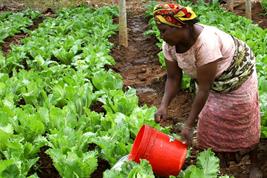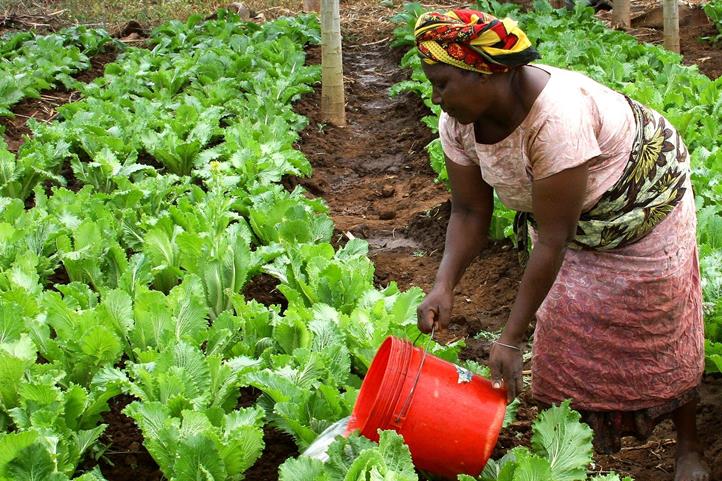29.11.2018
PRESS RELEASE

In the new “Vegi-Leg” project, researchers from the Leibniz Centre for Agricultural Landscape Research (ZALF) are working with partners from Germany and Africa to find solutions to improve malnutrition in Tanzania and Mozambique. In particular, new possibilities for the processing of foodstuffs, which will help make them more durable, are to be developed with the local people. The three-year project is coordinated by ZALF and is part of the “Global Food Security” development program of the German Federal Ministry of Food and Agriculture (BMEL).
The number of people worldwide who are malnourished now stands at 815 million, according to the United Nations Sustainable Development Report 2018. This includes rural population groups in Tanzania and Mozambique. Those affected often suffer from micronutrient deficiencies as a result of malnutrition. “One reason for this is that nutrient-rich plant foods, such as green- leafy vegetables, can be harvested abundantly during the rainy season, but up until now have either been stored inadequately or not at all during the dry season”, says nutritionist Dr. Constance Rybak, project manager at ZALF. In view of this seasonal food shortage, the research team in the “Vegi-Leg: Implementing innovative processing technologies for nutrient-dense plant foods (African indigenous vegetables and legumes) to safeguard perennial nutrition security– an East African and Southeast African country comparison” project aims to develop new and improved processing technologies to ensure the preservation of nutrient-dense plant foods. This is done in close cooperation with local companies, scientists and, above all, actors from subsistence agriculture, i.e. people who only grow for their own needs in order to secure the family’s livelihood. The project focuses on green leafy vegetables as provitamin A suppliers and pigeon peas as sources of protein.
It is also about the transfer into society
In order to assess the initial situation, a basic survey is conducted in which nutritional habits and current options for the cultivation, preparation, processing and storage of nutrient-rich foodstuffs are investigated. Furthermore, researchers are collecting anthropometric data, such as the height and body weight of women and children, who often have a poor nutritional status due to cultural reasons. The jointly developed processing methods will later also be introduced into the communities in training workshops on preparation and processing techniques. Therefore, the project is also addressing methods for transferring knowledge into the local society. The researchers want to evaluate the impacts of the developed processing technologies by conducting a final survey in the participating villages. Additionally, monitoring activities after project lifetime are envisaged in order to continuously further develop and disseminate the solutions developed.
Project Partners:
- Leibniz Centre for Agricultural Landscape Research (ZALF) (co-ordination)
- Community Council of Maganja da Costa, Mosambique
- Institute of Agricultural Research of Mozambique (IIAM)
- Nema Foundation, Macomia, Mosambique
- Small Industries Development Organization (SIDO), Tanzania
- Sokoine University of Agriculture, Tanzania
- Universidade Lúrio, Mosambique
- University of Hohenheim
Project Sponsor:
- Federal Office for Agriculture and Food (BLE)
Development Program:
- Global food security „ Innovative approaches to process local food in Sub Saharan Africa and Southeast Asia, which contribute to improved nutrition, as well as qualitative and quantitative reduction in losses” (BMEL)
 Press Release as PDF
Press Release as PDF
Pictures
To download the photos please click on the appropriate image and download it from the download icon.


Field work in Tanzania: Source: © CC0 – Creative Commons.
